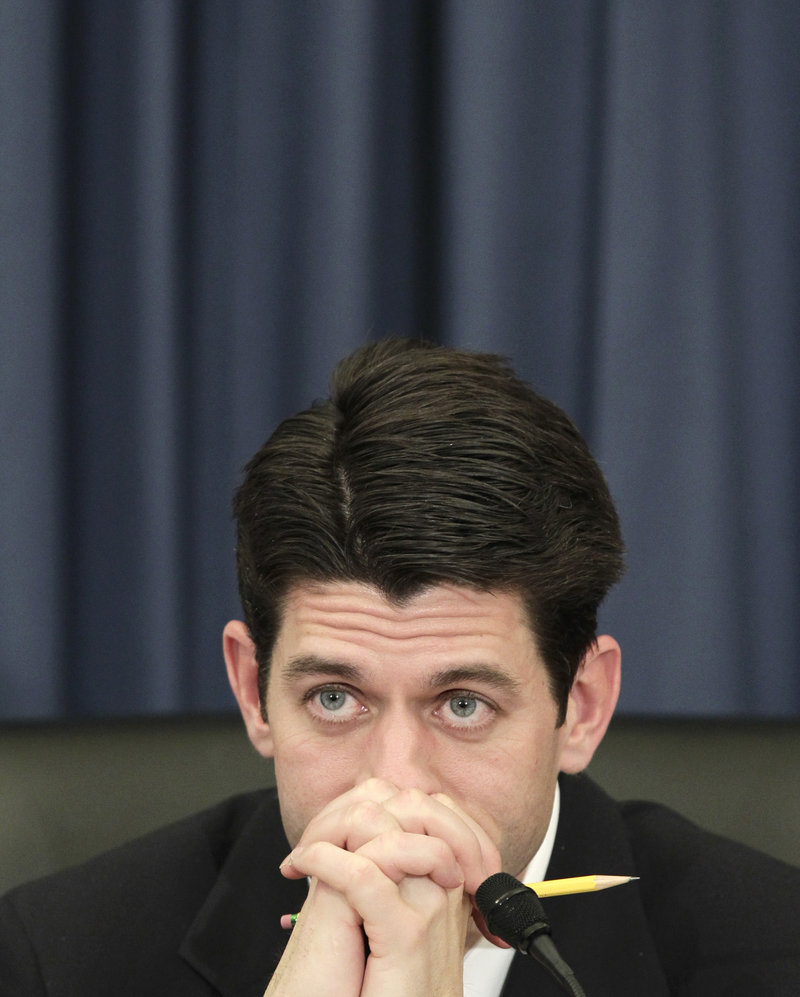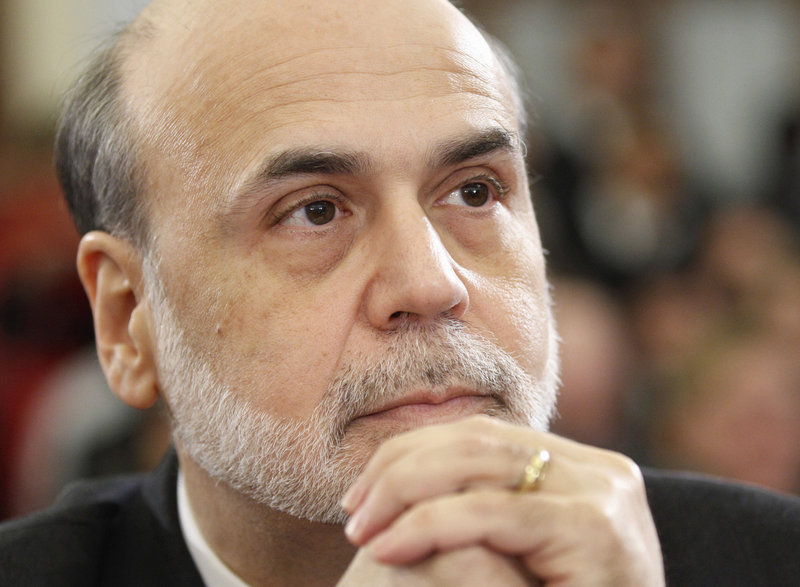WASHINGTON – Federal Reserve Chairman Ben Bernanke faced tough questions at a House hearing Wednesday over the threat of rising inflation brought on by the central bank’s policy of buying hundreds of billions of dollars in bonds to try to strengthen the economy.
House Budget Committee Chairman Paul Ryan. R-Wis., told the Fed chief that he is concerned that the Fed won’t be able to detect inflation until “the cow is out of the barn” and until inflation is already spreading dangerously through the economy. He and other Republicans are skeptical of the Fed’s November decision to buy $600 billion in Treasury bonds, fearing it will cause prices to jump too much.
Ryan also pushed Bernanke on what role the Fed’s stimulus efforts might play in an outbreak of inflation in developing nations such as Brazil and China in recent months.
“We’ve got inflation popping up in other parts of the world,” Ryan said. “To what extent do you think the Fed’s monetary policy has contributed to these global inflationary pressures? Has this contributed to some of these hot money flows abroad?”
Bernanke dismissed the fear, arguing that underlying supply and demand are driving higher prices for oil, wheat and many other items, rather than the Fed printing too much money.
“Monetary policy can’t do anything about bad weather in Russia or increases in demand for oil in Brazil and China,” Bernanke said. “What we can do is try to get stable prices and growth here in the United States.”
It was Bernanke’s first appearance before a committee of the new Republican-led House. And though he had a new audience, the Fed chief mostly gave the same message.
Bernanke hewed closely to previous statements about the economy and the federal budget: that the economy is gaining ground as 2011 begins, that unemployment is too high and that the skyrocketing budget deficit poses dangers to the economy if it isn’t brought down.
Most of Bernanke’s testimony was close — or identical — to comments he made before the Senate Budget Committee early last month and at the National Press Club last week.
Bernanke said in his testimony that the Fed is committed to price stability and is confident that the Fed can end the bond-buying when the economy shows significant enough growth.
He showed little concern about rising fuel and food prices, saying that “overall inflation is still quite low, and longer-term inflation expectations have remained stable.”
Bernanke also acknowledged Friday’s report that the unemployment rate fell to 9 percent in January, from 9.4 percent in December and 9.8 percent in November.
Send questions/comments to the editors.




Success. Please wait for the page to reload. If the page does not reload within 5 seconds, please refresh the page.
Enter your email and password to access comments.
Hi, to comment on stories you must . This profile is in addition to your subscription and website login.
Already have a commenting profile? .
Invalid username/password.
Please check your email to confirm and complete your registration.
Only subscribers are eligible to post comments. Please subscribe or login first for digital access. Here’s why.
Use the form below to reset your password. When you've submitted your account email, we will send an email with a reset code.